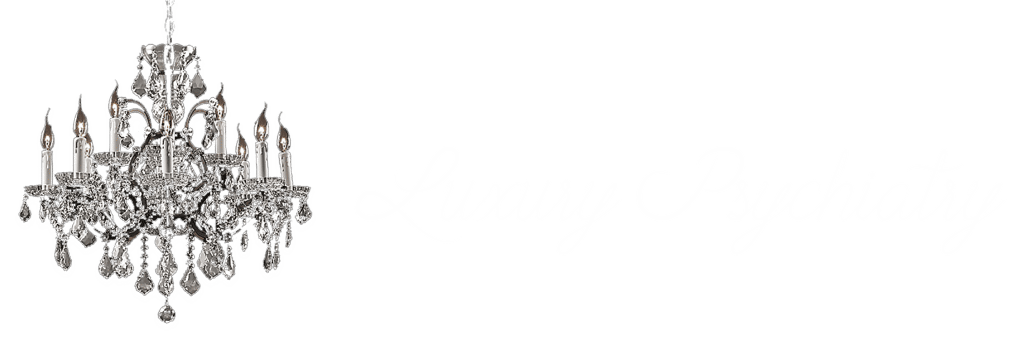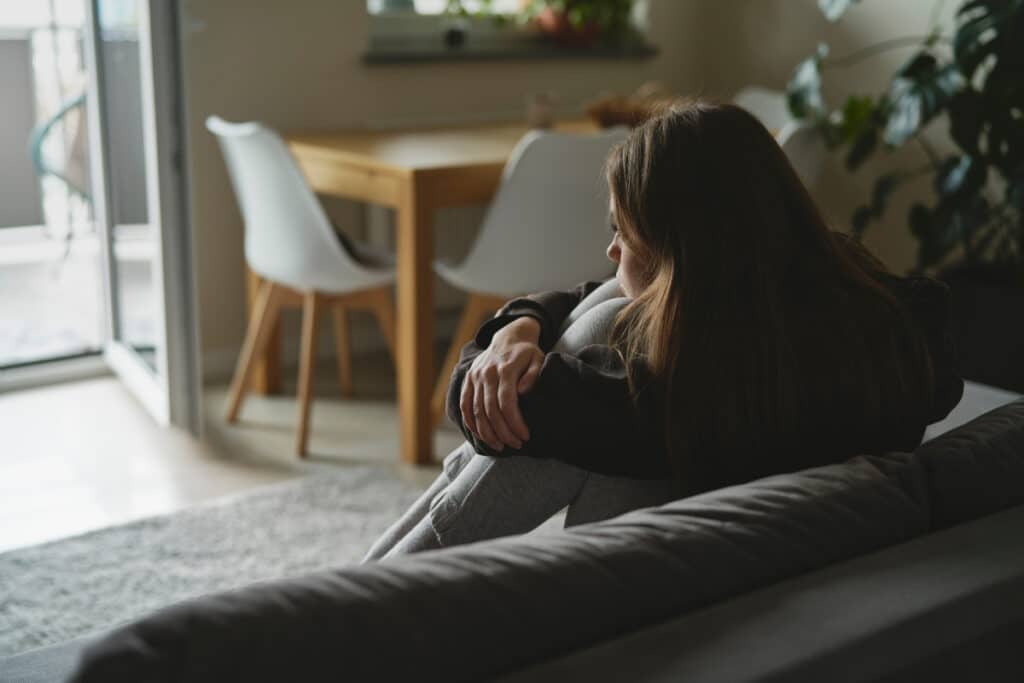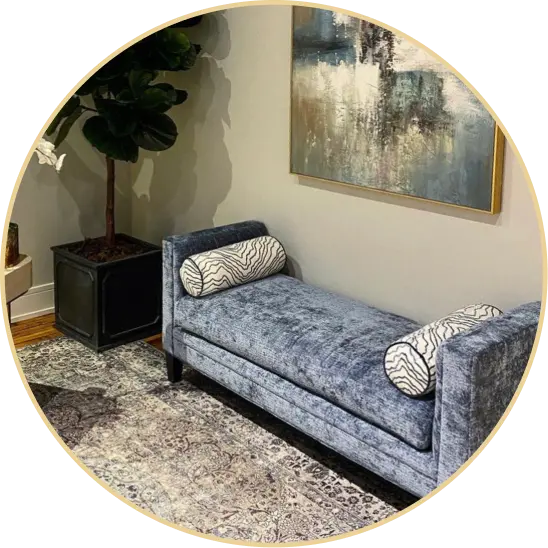Seasonal depression and depression are severe mood disorders that can affect an individual’s day-to-day life. Although the symptoms, causes, and treatment plans may overlap, there are some crucial differences between the two conditions. Identifying these mental health conditions is critical to ensure the best management and treatment approach.
What is Seasonal Depression?
The fall and winter seasons often signal the months of celebration and holidays. However, for some, the darker, colder days herald a period of fatigue, lethargy, and depression.
Also known as seasonal affective disorder (SAD), seasonal depression is a type of depression that happens with the changing seasons. Its symptoms mostly start during the fall season and continue into winter, sapping the victim’s energy and making them feel moody.
A person may have SAD if they experience certain symptoms that usually start and stop during a specific month and occur for about two consecutive years. These can include oversleeping during the day, daily feelings of depression, or even thoughts of suicide and death.
Seasonal depression primarily affects women and those living in the northern parts of the United States, like New England and Alaska. The condition can also sometimes run in families.
What are the Symptoms of Seasonal Depression?
Since Seasonal Affective Disorder is also a type of major depressive disorder, its symptoms can resemble depression symptoms. A person may notice changes in their mood, such as hopelessness, numbness, and sadness, along with changes in appetite and, in severe cases, suicidal ideation.
Although SAD presents the same changes as general depression, it usually manifests differently.
Aside from having a sustained, depressed mood for weeks, people with Seasonal Affective Disorder usually develop lethargic depression. And while general depression is often associated with insomnia and loss of appetite, patients with seasonal depression are more prone to oversleeping and overeating.
Most people with SAD have winter depression, where symptoms start in the late fall and go away in spring or summer.
Symptoms specific to winter-onset SAD may include:
- Weight gain
- Oversleeping
- Tiredness or low energy
Seasonal depression can also occur in the spring and summer seasons. Symptoms specific to summer-onset SAD, also known as summer depression, may include:
- Poor appetite
- Increased irritability
- Trouble sleeping
- Agitation or anxiety
- Weight loss
Note that: the primary differentiating factor with seasonal affective disorder symptoms is that they start and stop with the seasons. A SAD patient can feel okay and stay depression-free much of the year, and their depression episodes have a seasonal pattern as opposed to being random.
What Causes SAD?
Doctors don’t know exactly what causes SAD. Contributing factors may vary from one person to the other.
Light is thought to influence seasonal depression. When there’s less sunlight during winter, the biological clock shifts.
Also known as the circadian rhythm, this internal clock regulates hormones, sleep, and moods. When it shifts, it makes it hard for someone to adjust to the various changes in daylight length.
The lack of sunlight during the winter can also lead to an overproduction of melatonin, a hormone that affects sleep patterns and moods in some people. If this happens, the person may end up feeling sluggish and sleepy.
Other causes of SAD include:
- Brain chemical imbalance
- Vitamin D deficiency
- Abnormal levels of serotonin
What is Depression?
Depression is a mood disorder characterized by persistent feelings of hopelessness, emptiness, and sadness. An individual might also lose interest in activities they usually enjoy.
More than just sadness and despair in response to life’s setbacks and significant life events, depression changes how an individual feels, thinks, and functions in daily activities. It often persists despite positive changes in circumstances and causes feelings that aren’t proportional to an individual’s current situation.
Without treatment, depression can worsen and last longer. And in severe cases, it can even lead to self-harm and death. Fortunately, treatments are usually effective in improving the various symptoms of depression.
What are the Symptoms of Depression?
The symptoms of depression may manifest themselves differently from one person to the other. For most patients, however, depression affects their ability to interact with others and perform daily activities.
If a person is suffering from depression, they may often experience either of the following:
- Changes in how much they sleep
- Physical problems like headaches and sexual dysfunction
- Having a tough time concentrating
- Being easily irritated
- Loss of appetite
What Causes Depression?
Some of the factors that cause depression include:
- Life events: Stress, isolation, trauma, and grief can cause depression.
- Personality: Individuals who are easily overwhelmed may be prone to depression.
- Medical conditions: Certain illnesses can cause depression. For instance, patients with diabetes and Parkinson’s disease often experience depression.
- Genetics Depression can sometimes run in If a person has a relative with depression, they may be more likely to experience depression symptoms.
Some medications also have general depression as a side effect. Moreover, recreational drugs and alcoholic drinks can cause depression.
What are the Main Differences Between Seasonal Depression and Depression?
By definition, SAD is a subtype of general depression. When distinguishing between these two conditions, it all comes down to timing. While depressive episodes can come and go anytime during the year, SAD symptoms occur in seasonal patterns.
However, it’s worth noting that just because depressive episodes occur in winter doesn’t mean an individual suffers from seasonal depression.
The holidays can be stressful for many people and, in some cases, trigger symptoms of general depression. For instance, experiencing depressive symptoms during Thanksgiving and New Year’s Eve due to traumatic memories associated with the festive season isn’t necessarily indicative of SAD.
Plus, some people simply want to get over winter and may experience the winter blues, a prevalent condition among those living in colder climates.
What’s the Best Treatment Option for SAD and Depression?
Treatment for SAD and depression often requires the same approach. The treatment process starts with carefully assessing an individual’s symptoms, family history, and other medical conditions to help determine an accurate diagnosis.
The best treatment for these conditions comprises anti-depressant medications, physical fitness, and a combination of psychotherapy approaches. Light therapy can also help to balance daily rhythms and hormones, especially for SAD.
Doctors usually design treatment plans and management approaches on an individual basis. They monitor a patient’s progress and adjust treatments as necessary to provide the best possible recovery path.
For particular cases of treatment-resistant depression, TMS treatment (transcranial magnetic stimulation treatment) may be an individual’s best option. TMS uses non-invasive magnetic fields to stimulate brain cells to improve overall mental health.
Learn More About Types of Depression with Luxury Psychiatry Clinic
If you’re experiencing symptoms of depression but are not sure whether you have SAD or general depression, you should consider getting a thorough, expert evaluation of your symptoms.
Here at Luxury Psychiatry Clinic, we take great pride in helping patients with mental health disorders recover quickly. Our licensed and certified therapists specialize in many types of evidence-based therapy, including interpersonal, motivational, and cognitive behavior therapy.
Schedule an appointment today if you need treatment or have questions about seasonal affective disorder vs. depression.
